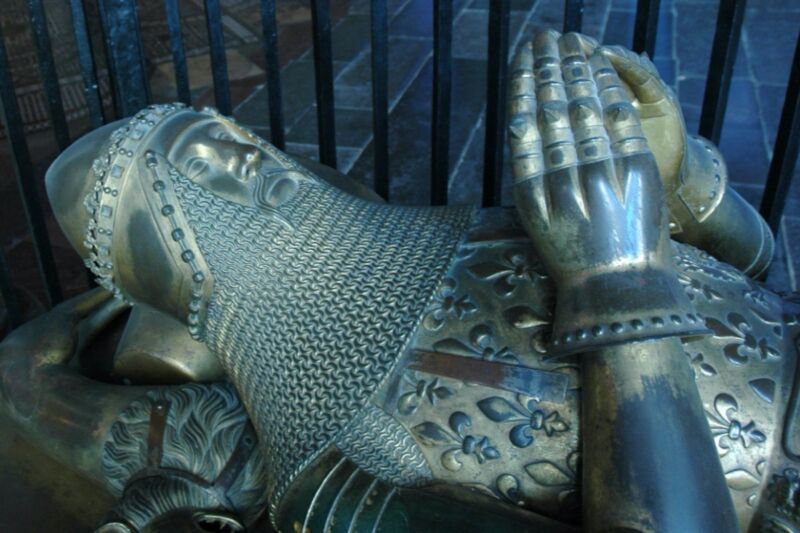
Enlarge / Effigy of Edward of Woodstock, aka the Black Prince, in Canterbury Cathedral. (credit: Josep Renalias/CC BY-SA 2.5)
There's rarely time to write about every cool science-y story that comes our way. So this year, we're once again running a special Twelve Days of Christmas series of posts, highlighting one science story that fell through the cracks in 2022, each day from December 25 through January 5. Today: A military historian argues that Edward the Black Prince died of malaria and inflammatory bowel disease—not chronic dysentery, as previously believed.
Edward of Woodstock, known as the Black Prince, was a formidable mid-14th century warrior who emerged from multiple battles relatively unscathed—only to be felled by disease at the relatively young age of 45. Historians have long believed he died of chronic dysentery, but James Robert Anderson, a military historian with 21 Engineer Regiment, believes the Black Prince was more likely brought down by malaria or inflammatory bowel disease. He and his co-authors made their case in a short December paper published in the journal BMJ Military Health.
"There are several diverse infections or inflammatory conditions that may have led to his demise," Anderson et al. wrote. "These might include malaria, brucellosis, inflammatory bowel disease, or long term complications of acute dysentery. However, chronic dysentery is probably unlikely."
As we've reported previously, Edward of Woodstock was the eldest son of King Edward III and heir apparent to the throne. He was educated in philosophy and logic and well-trained in the art of war—skills that proved useful in this particular period of the Hundred Years' War, when invasion by the French was a constant threat.
No comments:
Post a Comment